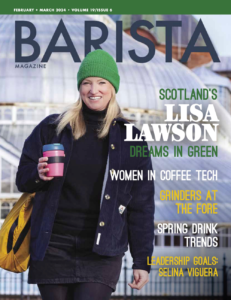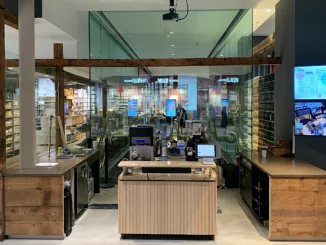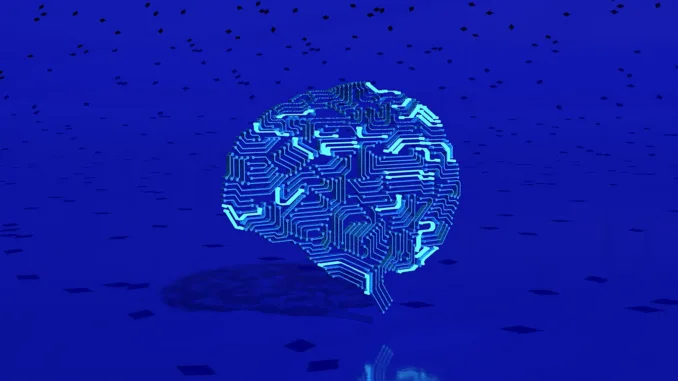
In this two-part series, we explore the multifaceted impact of artificial intelligence on the coffee industry.
BY VASILEIA FANARIOTI
SENIOR ONLINE CORRESPONDENT
Featured photo via Unsplash
Artificial intelligence (AI) has emerged as a groundbreaking force reshaping industries across the globe. The coffee industry is no exception. In this series, we’ll delve into the impact of AI on the coffee industry, its influence, and its potential for optimization, innovation, and craftsmanship.
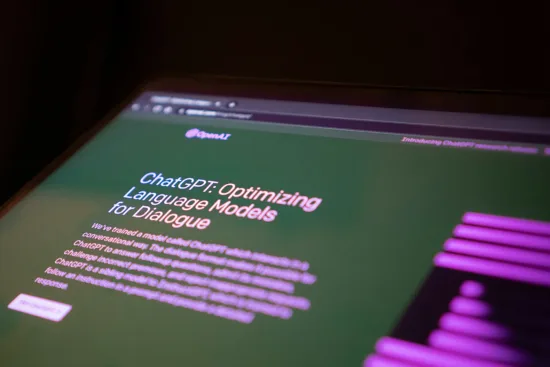
What Is Artificial Intelligence?
AI is a multidisciplinary field of computer science that aims to create systems capable of performing tasks that usually require human intelligence. AI has been in development for a significant period, with its roots tracing back to the mid-20th century. Early endeavors, like the creation of chess-playing computers and rule-based systems, provided the foundation for the AI landscape we navigate today.
The term “artificial intelligence“ is broad and encompasses a spectrum of technologies. These include machine learning, natural language processing, computer vision, and robotics. The umbrella nature of AI can be perplexing, leading to misconceptions about its capabilities and limitations.
The overarching goal of AI is to mimic human intelligence and enhance problem-solving capabilities to help humans. While it holds immense potential for optimization and innovation, it is a tool that should be wielded judiciously, recognizing its strengths and limitations.
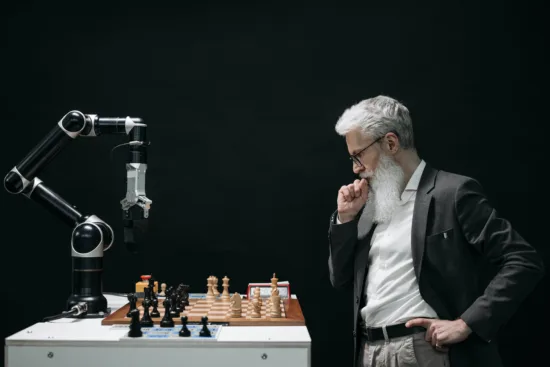
AI in the Food & Beverage Industry
A report published by Technavio in November 2023 estimates that AI in the food and beverage market will grow from $6.53 billion in 2023 to a staggering $9.56 billion by 2024. This represents a compound annual growth rate (CAGR) of 46.3%. The market is expected to reach a CAGR of 39.47% between 2024 and 2028.
The integration of AI in the foodservice industry could potentially enhance efficiency, reduce operational costs, and improve overall product quality. Machine learning algorithms are increasingly employed for predictive analysis in supply chain management, ensuring optimal inventory levels and minimizing waste. From precision agriculture to smart supply chain management and informed product development, AI may have the potential to revolutionize how we cultivate, process, and consume.
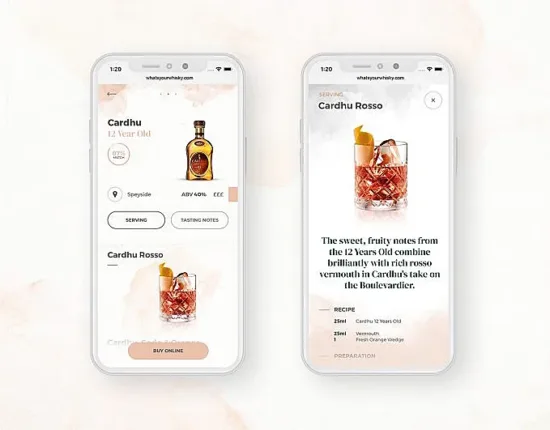
Two years ago, the British multinational alcoholic beverage company Diageo acquired Vivanda, the owner of the flavor-matching technology that powers What’s Your Whisky. Vivanda’s AI technology, called FlavorPrint, maps consumers’ preferences across a diverse range of tastes and aromas. This move allows Diageo to understand and respond to consumer preferences, driving informed product development. This is just one example of how AI can transform business operations.
AI Applications in Coffee
As the coffee industry evolves, companies are increasingly turning to AI to optimize and innovate. For example, coffee-equipment manufacturing has undergone a paradigm shift with the integration of AI technologies. In recent years, the Simonelli Group has joined the ranks of coffee machine manufacturing companies incorporating AI into their operations with the introduction of the Virtual Intelligent Scale (VIS). Integrated into the Eagle One espresso machine, VIS ensures precise coffee quantities based on pre-set recipes.
Roasting has also seen advancements through AI applications. Companies such as Aillio and Ansa have embraced AI in their roasting processes. Aillio’s AiO roaster is designed to become smarter as more users engage with the system, leveraging collected data through machine learning. Ansa’s Variety e23 roaster takes a different approach by employing AI to govern the roasting process autonomously.
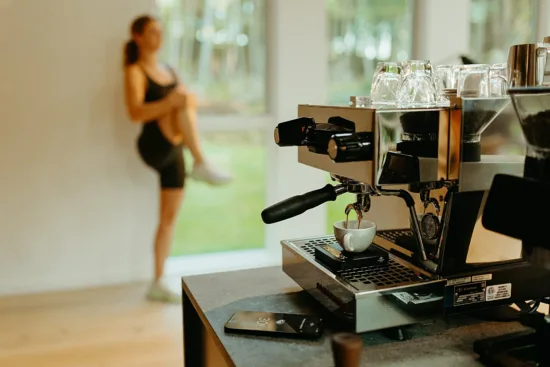
Another example comes from Acaia and La Marzocco’s collaboration on Brew By Weight, an exclusive scale for the Linea Mini home espresso machine. Harnessing machine learning, Brew By Weight employs a predictive drip algorithm to determine the optimal moment to stop brewing.
And there is a notable example from Norwegian coffee-roasting company Roest, which has integrated AI audio technology into its roasting system. Collaborating with audio and machine learning experts at Soundsensing, Roest’s AI-powered coffee roaster includes a built-in microcontroller equipped with a microphone and sound-sensing firmware. This innovative approach monitors the different cracks during the roasting process.
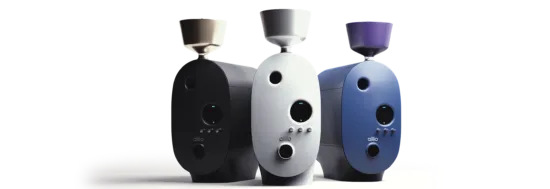
Symbiosis of AI & Human Expertise
While AI excels in automating repetitive tasks, its impact on the coffee industry could extend beyond mere efficiency gains. By handling routine processes, AI can free up coffee artisans to focus on experimentation, flavor innovation, and the craft of brewing.
This symbiotic relationship between technology and human expertise has the potential to reshape the narrative of coffee craftsmanship. Stay tuned to the next part of this article series about AI, where we’ll discuss its potential to transform the landscape for coffee producers, traders, and quality graders.
ABOUT THE AUTHOR
Vasileia Fanarioti (she/her) is a senior online correspondent for Barista Magazine and a freelance copywriter and editor with a primary focus on the coffee niche. She has also been a volunteer copywriter for the I’M NOT A BARISTA NPO, providing content to help educate people about baristas and their work. You can follow her adventures at thewanderingbean.net.
Subscribe and More!
Out now: It’s the February + March 2024 issue of Barista Magazine! Read it for free with our digital edition. And for more than three years’ worth of issues, visit our digital edition archives here.
You can order a hard copy of the magazine through our online store here, or start a subscription for one year or two.

